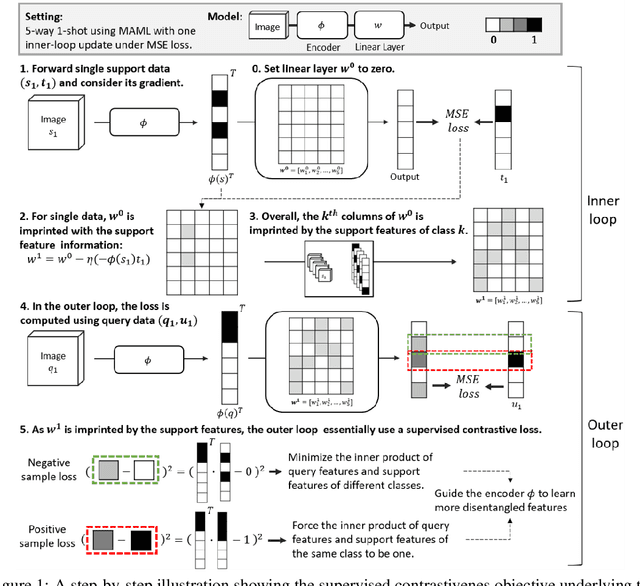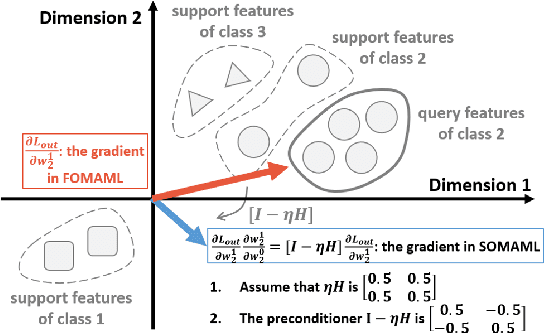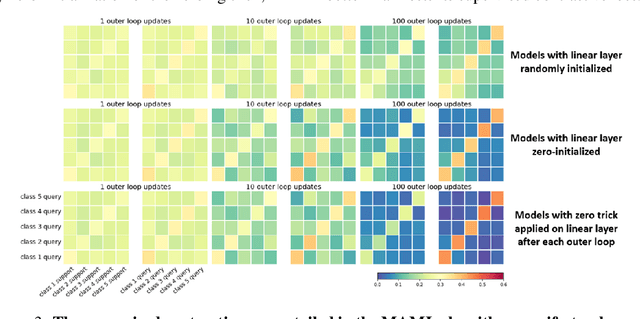MAML is a Noisy Contrastive Learner
Paper and Code
Jun 29, 2021



Model-agnostic meta-learning (MAML) is one of the most popular and widely-adopted meta-learning algorithms nowadays, which achieves remarkable success in various learning problems. Yet, with the unique design of nested inner-loop and outer-loop updates which respectively govern the task-specific and meta-model-centric learning, the underlying learning objective of MAML still remains implicit and thus impedes a more straightforward understanding of it. In this paper, we provide a new perspective to the working mechanism of MAML and discover that: MAML is analogous to a meta-learner using a supervised contrastive objective function, where the query features are pulled towards the support features of the same class and against those of different classes, in which such contrastiveness is experimentally verified via an analysis based on the cosine similarity. Moreover, our analysis reveals that the vanilla MAML algorithm has an undesirable interference term originating from the random initialization and the cross-task interaction. We therefore propose a simple but effective technique, zeroing trick, to alleviate such interference, where the extensive experiments are then conducted on both miniImagenet and Omniglot datasets to demonstrate the consistent improvement brought by our proposed technique thus well validating its effectiveness.
 Add to Chrome
Add to Chrome Add to Firefox
Add to Firefox Add to Edge
Add to Edge